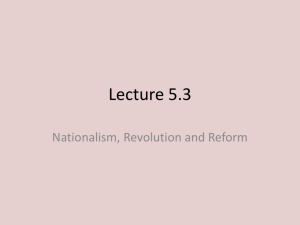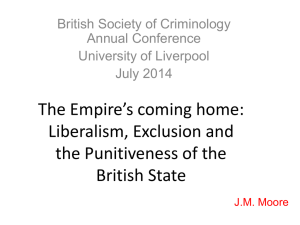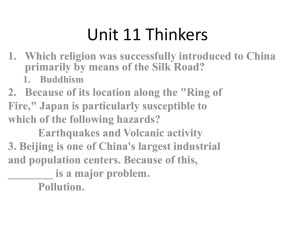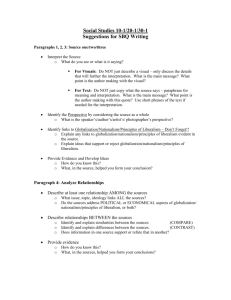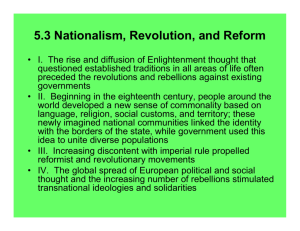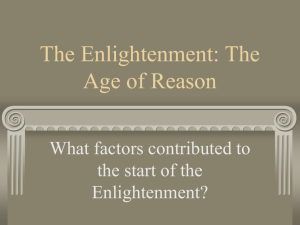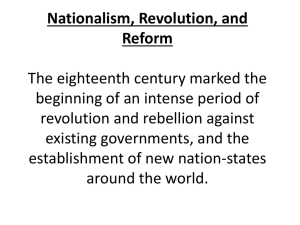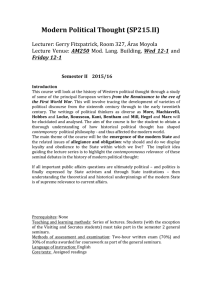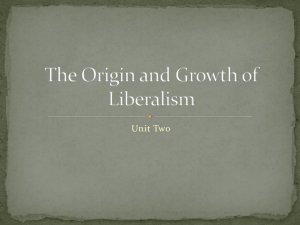Key Concept 5.2 Imperialism and Nation
advertisement
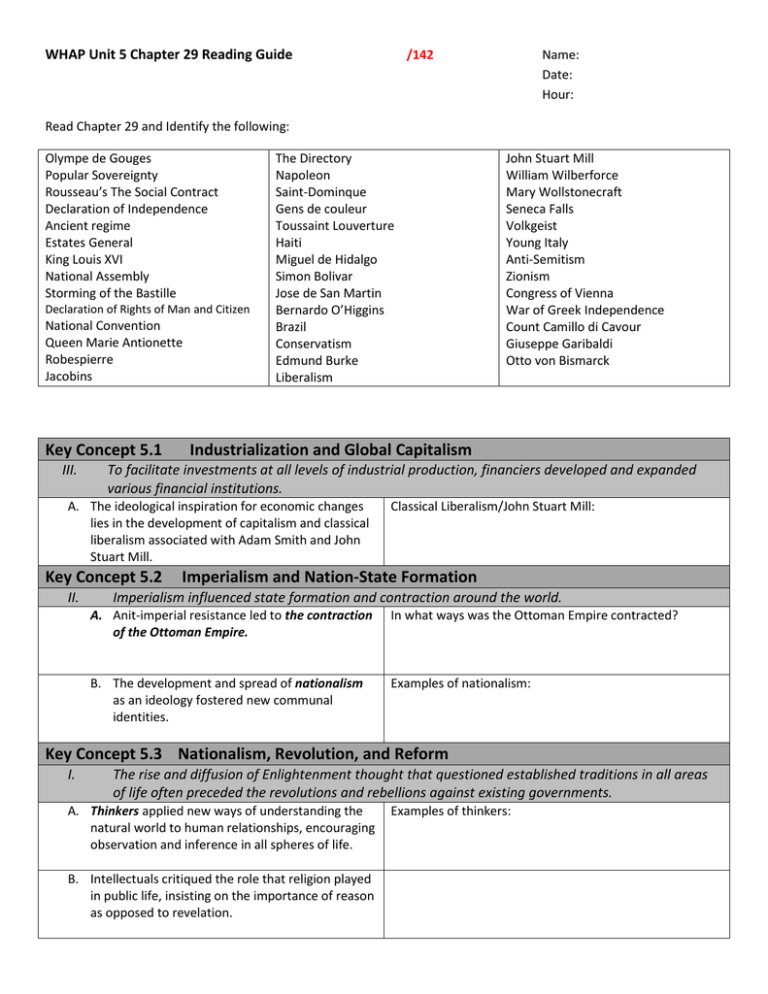
WHAP Unit 5 Chapter 29 Reading Guide /142 Name: Date: Hour: Read Chapter 29 and Identify the following: Olympe de Gouges Popular Sovereignty Rousseau’s The Social Contract Declaration of Independence Ancient regime Estates General King Louis XVI National Assembly Storming of the Bastille Declaration of Rights of Man and Citizen National Convention Queen Marie Antionette Robespierre Jacobins Key Concept 5.1 III. The Directory Napoleon Saint-Dominque Gens de couleur Toussaint Louverture Haiti Miguel de Hidalgo Simon Bolivar Jose de San Martin Bernardo O’Higgins Brazil Conservatism Edmund Burke Liberalism Industrialization and Global Capitalism To facilitate investments at all levels of industrial production, financiers developed and expanded various financial institutions. A. The ideological inspiration for economic changes lies in the development of capitalism and classical liberalism associated with Adam Smith and John Stuart Mill. Key Concept 5.2 II. John Stuart Mill William Wilberforce Mary Wollstonecraft Seneca Falls Volkgeist Young Italy Anti-Semitism Zionism Congress of Vienna War of Greek Independence Count Camillo di Cavour Giuseppe Garibaldi Otto von Bismarck Classical Liberalism/John Stuart Mill: Imperialism and Nation-State Formation Imperialism influenced state formation and contraction around the world. A. Anit-imperial resistance led to the contraction of the Ottoman Empire. In what ways was the Ottoman Empire contracted? B. The development and spread of nationalism as an ideology fostered new communal identities. Examples of nationalism: Key Concept 5.3 Nationalism, Revolution, and Reform I. The rise and diffusion of Enlightenment thought that questioned established traditions in all areas of life often preceded the revolutions and rebellions against existing governments. A. Thinkers applied new ways of understanding the natural world to human relationships, encouraging observation and inference in all spheres of life. B. Intellectuals critiqued the role that religion played in public life, insisting on the importance of reason as opposed to revelation. Examples of thinkers: C. Enlightenment thinkers developed new political ideas about the individual, natural rights, and the social contract. Examples of thinkers: D. The ideas of Enlightenment thinkers influenced resistance to existing political authority, as reflected in revolutionary documents. Examples of these documents: E. These ideas influenced many people to challenge existing notions of social relations, which led to the expansion of rights. Examples of expansion of rights: II. III. Beginning in the eighteenth century, peoples around the world developed a new sense of commonality based on language, religion, social customs and territory. These newly imagined national communities linked this identity with the borders of the state, while governments used this idea to unite diverse populations. Increasing discontent with imperial rule propelled reformist and revolutionary movements. A. Examples of rebellions: B. Slave resistance challenged existing authorities in the Americas. IV. Examples of slave resistance: The global spread of European political and social thought and the increasing number of rebellions stimulated new transnational ideologies and solidarities. A. Discontent with monarchist and imperial rule encouraged the development of political ideologies. Liberalism: B. Demands for women’s suffrage and an emergent feminism challenged political and gender hierarchies. Examples of such demands:
